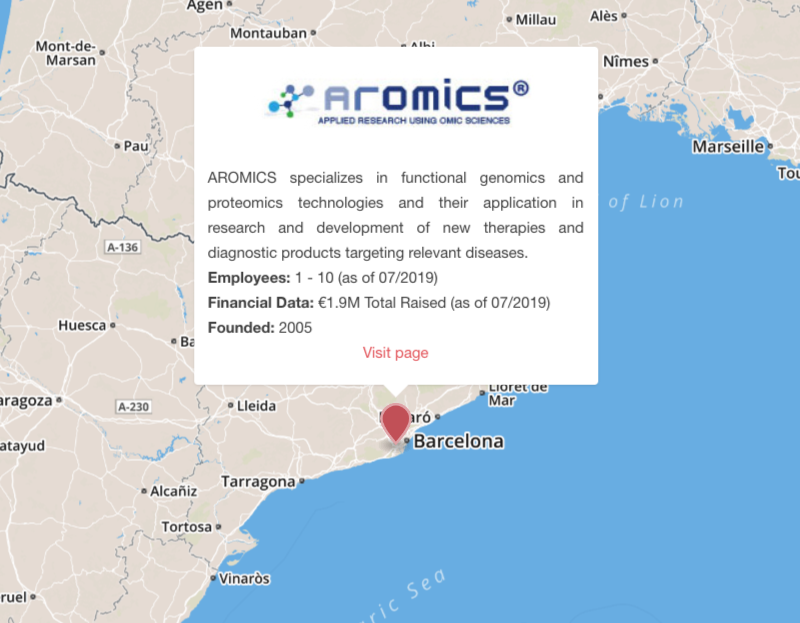Next time you travel to Barcelona, Spain, check out Aromics, a biotech that is using genomics and proteomics to develop treatments for cancers such as malignant mesothelioma, which can be caused by asbestos.

Mission: To use omics technology to treat drug-resistant cancers, as well as to identify cancer biomarkers that could improve monitoring in clinical trials.
Malignant mesothelioma is a rare and aggressive form of cancer that can appear as a result of exposure to asbestos. Aromics is developing drugs that could be effective alternatives to the two main chemotherapy drugs currently used to treat this cancer: pemetrexed and cisplatin.
“The efficacy of these drugs is remarkably low — over 50% of patients do not respond in the first place — and eventually, all become refractory in about four to five months,” Carme Plasencia, CEO of Aromics, told me. “When therapy fails, there is no second line treatment approved for these patients.”
Aromics’ lead compound is a small molecule drug designed to treat cancer. The treatment works by binding to mRNA molecules and blocking the production of an enzyme critical for cancer cells to proliferate. While this enzyme is also the target of pemetrexed, Aromics can get around drug resistance by blocking the production of the protein rather than blocking its activity once it’s been produced.
Aromics’ drug development includes using the so-called ‘omics’ technologies. Including genomics and proteomics, omics technologies generate much more detailed datasets of cancer models than traditional tools. For example, the company uses proteomics to measure the effects of its lead drug on the target gene in cancer models. Genomics and proteomics also help to identify biomarkers that indicate which patients might benefit the most from this drug.

In the future, the company aims to collect even more information from other omics techniques, such as metabolomics, which measures how drugs affect levels of metabolic molecules.
Founded in 2005 in Barcelona, Spain, Aromics is also developing its lead compound to treat lung cancer and other solid tumors.
What we think:
Using omics technologies could speed up the development of drugs in several ways. First, they could give detailed information about the effect of the drug on a patient’s metabolism and protein expression. Second, they could let the developers stratify patients in clinical trials and define their efficacy targets more reliably.
Omics techniques, such as genomics, are becoming ever more popular in the biotech industry due to their falling costs and potential to guide personalized medicine. Plasencia believes that Aromics stands out from other companies using omics because it uses these methods to guide every aspect of the drug development process, including defining biomarkers relevant to the drug.

A drawback of using omics approaches is that there is a huge amount of data, which requires lots of expenses, time and data storage capacity. “Omics provides a lot of information in one glance and requires clear hypothesis-driven work, focus on data interpretation, and the meaning of its translation,” Plasencia said.
In the future, technological advances are likely to help omics approaches to get a firmer foothold in the drug development process. One example of this is advances in data analysis tools, particularly artificial intelligence. “Definitely, artificial intelligence is going to help us to support the integration, analysis and management of these data to provide physicians with tools to really implement the knowledge into real practice,” Plasencia concluded.
Images from Shutterstock





